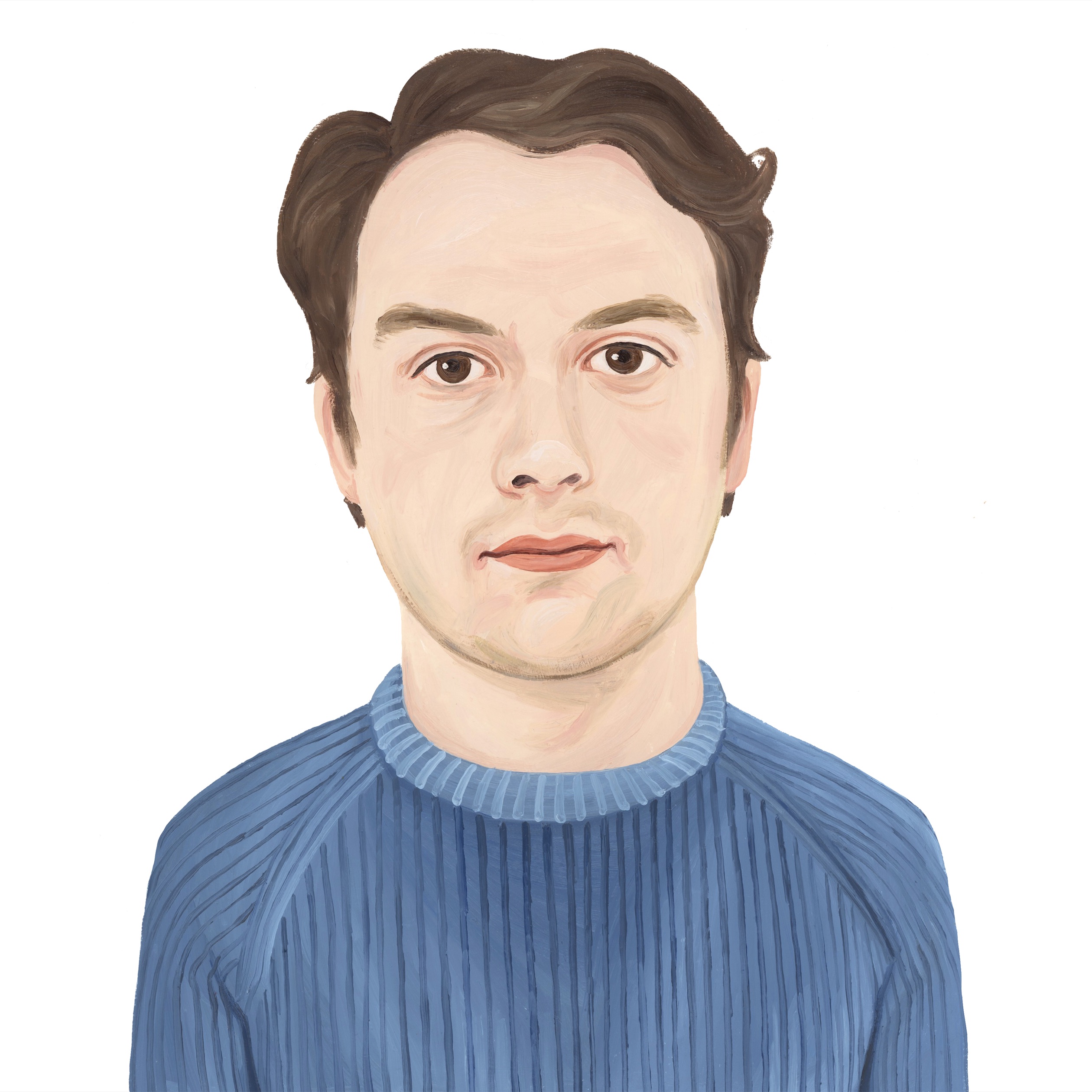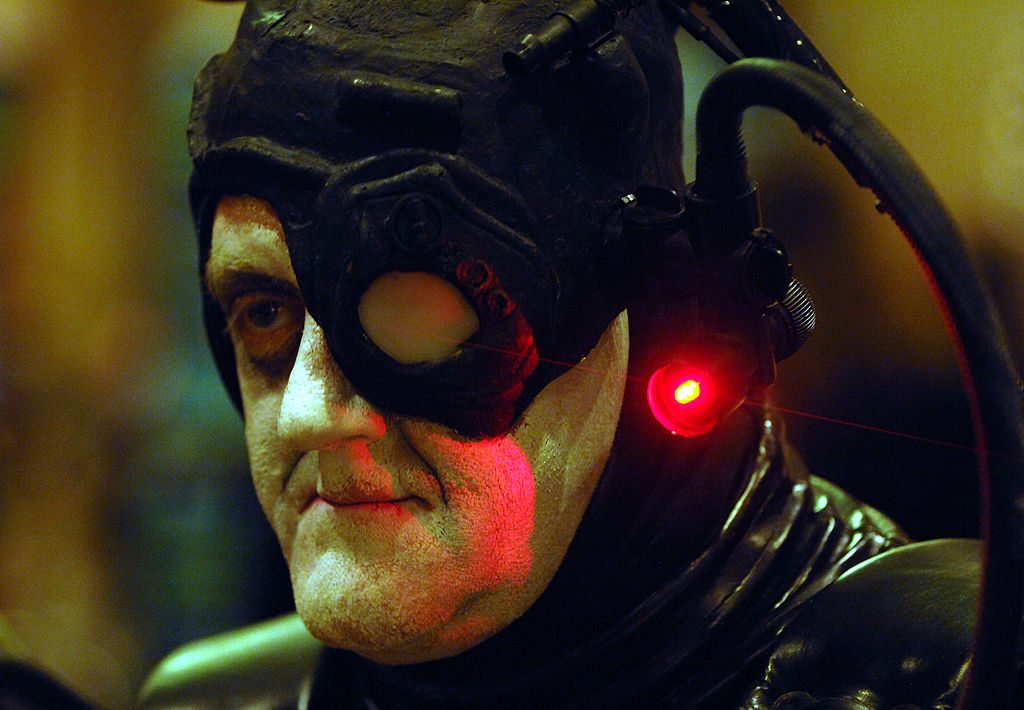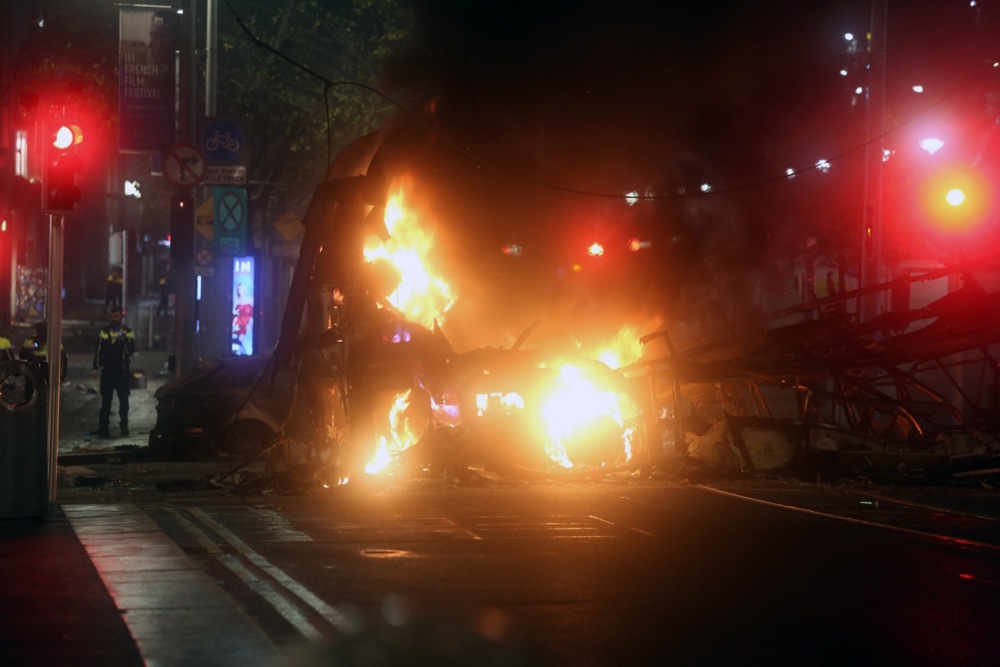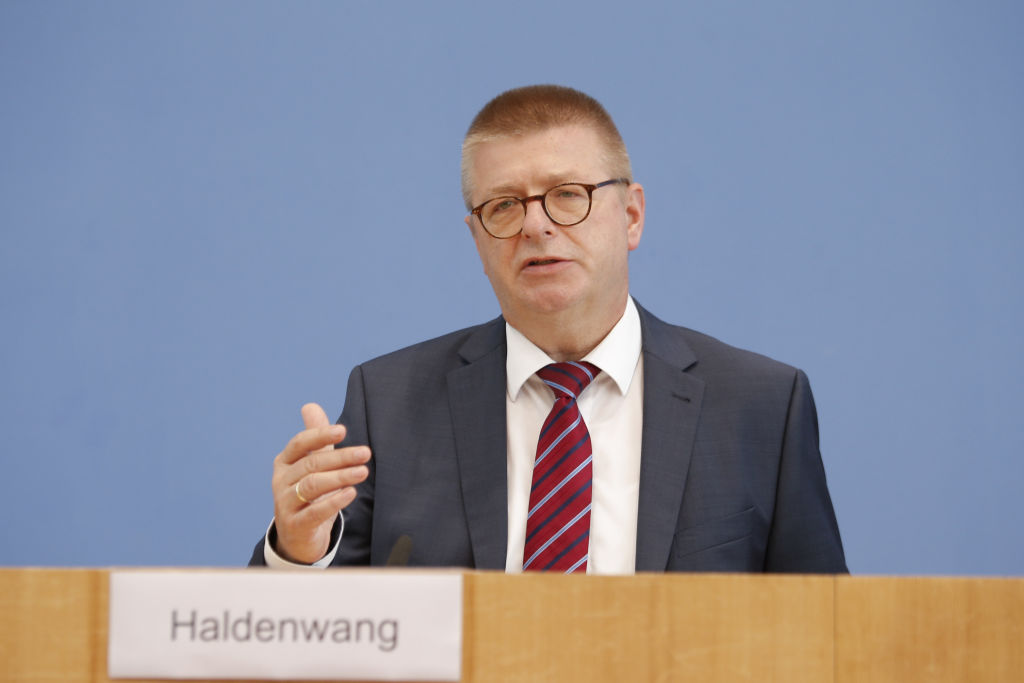“Thus it was that, 68 years ago, the flag of Austria was raised above the land, and the Austrian Dragoon was the law in Hungary … her name erased from the map of Europe. ‘Hungary is dead.'”
Such goes the introduction to Arthur Griffith’s seminal 1904 work, The Resurrection of Hungary.
The title gives the game away, really. To paraphrase Mark Twain, reports of Hungary’s death were greatly exaggerated. Not even 20 years after Hungary was dissolved, supposedly forever, it had reappeared under the dual monarchy of Austria-Hungary.
Then, 16 years after the publication of Griffith’s book, the country would become completely independent from Austria, albeit while also losing much of its territory in the process.
The point is this: within the space of around 70 years, Hungary went from being declared “dead” forever to a fully independent country once again.
As of writing, it is a shade over 33 years since the dissolution of the German Democratic Republic (GDR), better known then as “East Germany”.
When the Communist state was dissolved, it was supposed to be gone “forever” also. The region’s five Federal states were reunited with their brothers in the West, finally creating the free and democratic State of Germany we all know and love today.
And yet, divisions in the country are once again rearing their ugly heads.
While Germany has been made whole, major social and economic divides still separate East and West. Those living in the formerly Communist-controlled regions remain relatively poor on average and are growing more dissatisfied with the mostly Western political class in Berlin.
Increasingly, Easterners are turning to right- and left-wing populists in the hope of fighting back against this mainstream, desperate to regain some power, some respect, for their part of the country.
Barriers are once again appearing in the minds of today’s Germans. Could economic, or even physical ones follow? Are we seeing a political resurrection of East Germany?
VIDEO: Growth of hard-right AfD in western Germany lags growth in eastern Germany by five years, says @KrahMax.
Full vid at https://t.co/GGMIjk8DEl pic.twitter.com/6PXAm8AK45
— Brussels Signal (@brusselssignal) October 20, 2023
The reunification of the East with the West was celebrated worldwide, with the event marking the dying hours of the Cold War.
This replacement Germany, this Federal Republic of Germany, was a new, democratic, free country ready to take its place as one of the major players in the Western world. The end of history had arrived and the Germans were at the centre of it all.
Of course, none of that was true. Not really.
The unification of Germany ended up being less of a combination of East and West and more of an annexation of the former by the latter.
One can see this in the name alone: the Federal Republic of Germany was simply the official name of the capitalist West. In other words, it was a propaganda title that screamed: “We own all of Germany, really. Those stupid Commies just have not realised that yet.”
Reunification came with certain adjustments for West Germans. These “Wessis“, as they were – and still are – known, saw their capital move from Bonn in North Rhine-Westphalia to Berlin, surrounded by the Eastern state of Brandenburg.
They were hit with higher levies, too, with a so-called Solidarity Tax of 7.5 per cent on their income to help pay for the new territories. As always with this sort of thing, that temporary tax still has not yet been repealed.
None of these changes compared to what the Ossis – the former citizens of the Communist East – had to put up with.
Going from Communism to capitalism came with heaps of benefits – the main ones being political and social freedom. But it also came with severe costs.
Businesses formerly owned by the Communist State quickly folded, unable to keep up in the free market. This soon resulted in unemployment, something that was completely unheard of in the East, where a job had previously been a guaranteed right under the Socialist Constitution.
Adding insult to injury, many who had lost their incomes then had to deal with rent hikes as their homes were bought from the GDR by private enterprises.
To be clear, for these Ossis, the benefits of this new capitalist world clearly outweighed the struggles. Still, it would be wrong to deny that they existed.
So how did this new Germany solve these struggles?
The answer is simple: it didn’t.
VIDEO: If the EU doesn't put an end to immigration "everything else is done", AfD MEP @KrahMax said during an interview in the Brussels Signal studio.
Full vid: https://t.co/GGMIjk8DEl pic.twitter.com/dVsUBJluOl
— Brussels Signal (@brusselssignal) October 19, 2023
To this day, there remain seismic economic and social disparities between the East and West.
The Berlin Wall may have fallen but the border remains at the economic level. To this day, Ossis earn far less than Wessis. In 2021, households in Bavaria, Hamburg and Baden-Württemberg were listed as having the highest level of disposable income per household member, while the states of Mecklenburg–Western Pomerania, Thuringia, and Saxony-Anhalt were among the lowest.
All three of the former states are located in what used to be the capitalist West. All three of the latter were formerly part of the Soviet East. Even the highest-ranked former East German state, Brandenburg, ranked well below the nation-wide average in this test.
This earnings gap has translated to a sizeable savings gap, also.
Today, the overall average wealth of the West German household is valued at €127,900. In the East, it is just €43,400.
East Germans also have little representation in positions of power. While former Chancellor Angela Merkel is a notable exception – being raised from childhood in the GDR – very few of the country’s current elite have their origins in the East.
The disparity is so pronounced that numerous experts have suggested putting diversity quotas in place for Ossis to try to even out this apparent unfairness.
Even political attitudes towards Ossis remain relatively hostile. Mathias Döpfner, the CEO of Bild, found himself in hot water last year after his views on German Easterners were leaked from private correspondence.
“My mother always warned me about the Ossis,” one email sent by the major media mogul in 2020 read, before complaining that Germany’s worst politicians, from “Kaiser Wilhelm to Hitler” had all been put into power thanks to the political support they received from Eastern Germany.
“The Ossis are either communists or fascists,” he added in another. “They don’t do anything in between. Disgusting.”
Germany’s Government is examining the possibility of banning the populist Alternative für Deutschland (AfD) party from receiving State funding. https://t.co/8jaNnz6VZw
— Brussels Signal (@brusselssignal) January 22, 2024
But what do the East Germans think of all of this?
It should surprise no one that the general consensus among them is that the collapse of Communism was a good thing. The Soviet world was not exactly a nice place, after all. Freedom is better than slavery.
Beyond this, attitudes regarding reunification are not all that positive.
Studies conducted throughout 2023 have found that those located in the East still feel detached from the rest of Germany. Three in four say they still feel like East Germans, with two in three expressing nostalgia for how things used to be under the former Communist regime.
A quarter said they felt like they have been the “losers” of German reunification.
This alienation extends to the world of politics, with faith in Western democracy as a concept being relatively low.
Two in three people believe it is pointless to get involved in politics at any level, while even more feel that they have zero way of holding their own Government to account.
One university study found that half of East Germans now desire the return of a “strong party” that values “Volksgemeinschaft” as one of its key principles.
This last point startled researchers. Literally translated as “people’s community”, the term was heavily used by Hitler’s Nazi party in the 1930s and carries with it strong racial and ethno-nationalist connotations. Although it should be noted that it is not exclusively used in this way.
During a topical European Parliament plenary debate on Tuesday evening, liberal and left-wing MEPs called for the heads of Germany’s Alternative für Deutschland (AfD) party. https://t.co/d2UGJ9A7Np
— Brussels Signal (@brusselssignal) January 18, 2024
Not all East Germans have given up on Democracy, as evidenced by recent polling in the states formerly controlled by the Soviets.
Germany’s populist Alternative für Deutschland (AfD) party has seen its popularity surge across the entirety of Germany but it is in the formerly Communist East where the movement has truly shined.
The AfD holds a substantial lead in the polls in all five of the states on the territory of the former GDR, with only the city of Berlin seeing it beaten by other mainstream groups.
Support for the ex-Communist leadership of the East also remains high. Die Linke, the direct successor to the Socialst Unity Party (SED) that formerly ruled the GDR, still commands up to 16 per cent of the vote in some states.
Meanwhile, the Sahra Wagenknecht Alliance – Reason and Justice (BSW), an anti-“woke” offshoot of Die Linke that was formed just this year, is even stronger in some states.
What is particularly notable about these parties is the prevalence of Ossis in their higher ranks. While the biggest names in the Christian Democrats, SPD, Greens and Free Democratic Party are all Westerners, these more rebellious parties are proportionately speaking dominated by the East.
AfD leader Tino Chrupalla was born in Saxony, as was the party’s lead candidate for the European elections, Maximilian Krah MEP.
Wagenknecht – who heads up the party bearing her name – was born in the GDR in Thuringia, even becoming a member of the SED during the dying days of the Communist era.
Dietmar Bartsch, the former leader of Die Linke’s parliamentary group before its demise late last year, is not only from East Germany but served in the Communist nation’s military in the late 1970s.
BSW, @SWagenknecht’s new left-wing faction in Germany, has presented its draft European Union programme. The party said it wanted to “trim down” the EU, do away with most of its climate policies and “improve relations” with Russia. https://t.co/JRB2Jpyuge
— Brussels Signal (@brusselssignal) January 17, 2024
This political shift has spooked many in the West.
With the increasing prominence of the AfD in the run-up to major state elections in Saxony, Brandenburg and Thuringia this year, many pundits now fear that the Eastern region will soon become “ungovernable” as more mainstream parties refuse to enter a coalition with either it or Die Linke.
Then there is the upcoming European Parliament elections later this year. With its high polling, it is expected that the AfD could win as many as 20 of the country’s 96 seats in the Parliament, with the shift likely to help lift the populist Identity and Democracy Group into becoming the third-largest group in Brussels.
These fears have translated into some politicians advocating for the use of less-than-democratic methods to get rid of the AfD.
Some are campaigning to have the party banned across Germany for being “too right-wing”, while others suggest it would be easier to strip it of all state funding using clauses in the German Constitution.
The leader of the group’s Thuringia branch Björn Höcke has been publicly targeted with calls for him to be stripped of his “fundamental rights”, and arguments that he should not even be allowed to vote in elections.
This is also a power provided for under the Constitution should a person be deemed “a threat to the country’s democratic order”, although the deployment of such a measure requires a court ruling.
None of these calls for partial or complete bans have seen the party’s popularity dip yet, with the group still polling at near-record highs.
As of writing, the highest peak in popularity for the AfD nationally has been 24 per cent. In the East, it is even higher.
A new survey puts Germany’s right-wing Alternative für Deutschland (AfD) party well ahead of its competitors, polling at 37 per cent. https://t.co/WfQBUhsQ6m
— Brussels Signal (@brusselssignal) January 2, 2024
What does all this reveal?
According to nationwide polling conducted last year, the majority of Germans think that the East and West of the country are once again drifting apart.
We are now seeing that opinion reflected in the regional polling. As the months go by, it appears that what once was East Germany is becoming less and less like the West.
Such a divergence is prompting Western fears that the region will soon fall out of the control of the parties it deems to be acceptable in the public sphere. Nevertheless, such groups – Left and Right – appear largely unwilling to do business with these rising powers.
If trends continue, could we see Germany not just polarised politically but geographically as well?
According to experts, probably not.
Speaking to Brussels Signal, Katja Hoyer – author of an acclaimed, bestselling history of East Germany Beyond The Wall: East Germany 1949 – 1990 – rejected the idea that there has been any lasting East-West split.
“East Germany is the canary in the coal mine rather than the anomaly,” she said, arguing that both regions were ultimately on the same political trajectory.
While she acknowledged that the likes of the AfD and the BSW had seen stronger growth in the East, Hoyer noted that both groups were also becoming increasingly prominent in the West.
She also challenged the idea that these parties are truly dominated by Easterners, with both having sizeable Western presences as well.
“The MPs that defected with Wagenknecht are mostly West German and so are many AfD leaders with Björn Höcke [who was raised in the West] being the obvious example,” she added.
This view is shared by AfD representative Maximilian Krah, who views his native East as simply being “ahead of the game” when it comes to politics.
“The East, politically speaking, is five years ahead,” he told Brussels Signal’s Head of News, Justin Stares, during an interview last year.
He added that the AfD had also become the second-largest party in the West and that the process of such growth “will continue” as other more mainstream parties fail to properly address many of the major issues facing Germany.
Germany’s main opposition leader Friedrich Merz backtracks to say that any form of cooperation with the right-wing Alternative for Germany (AfD) is ruled out. https://t.co/T1UjZ6oOlw
— Brussels Signal (@brusselssignal) August 29, 2023
And yet, despite the testimony of both of these experts, there remains – for me at least – a sense that something has gone wrong.
Even with the Berlin Wall demolished and the GDR declared defunct, Germany remains harshly divided.
Yes, political unrest has been creeping up in the West too but nothing compares to the utter dominance of populism in the East.
This is the region where support for mainstream parties goes to die. Where the BSW eats away the support for the mainstream Left while the AfD dominates the Right, boasting the most support among any party with leads often in the double-digits of whatever its second-most popular rival is.
As with Hungary before it, East Germany now seems to threaten resurrection. Not as a Communist country. Not as part of the Soviet bloc. Not even as an independent state.
But as a genuinely unique sociopolitical entity in Europe, the politics of which are totally unlike anywhere else in the Western world.
Would this be the end, or will East and West divide further?
Will the prospect of an AfD-controlled East prompt Wessi politicians to cease their dealings with the East? To put up barriers, economically and socially, if not physically?
Would such an AfD government respond in kind, rallying their disaffected Ossis to a new form of East German nationalism dominated by a desire to be anti-woke? To be free of the now-stifling control of the West?
For now, the experts do not seem to think so but the fact that such a revival is not beyond the realm of possibility is remarkable.
From the United States to Germany, the self-proclaimed defenders of democracy are fast becoming its enemies: They are playing a very dangerous game, writes @Raphfel. https://t.co/tuXQoCRKrc
— Brussels Signal (@brusselssignal) January 9, 2024






Win or lose, Brussels has fumbled the war in Ukraine